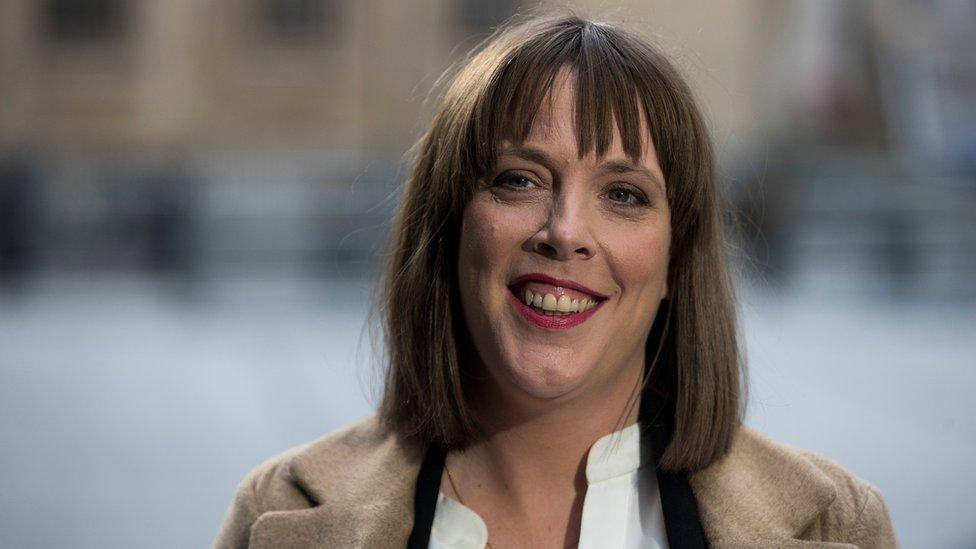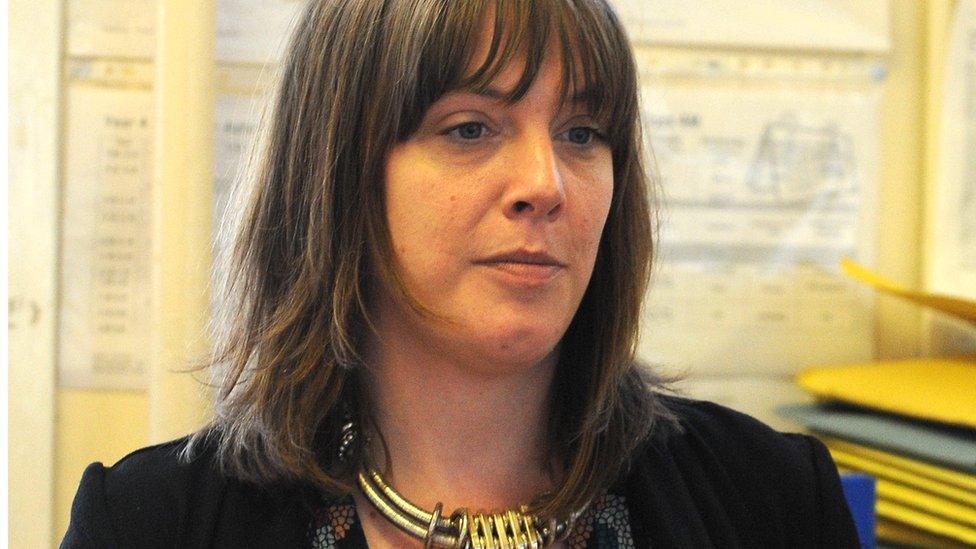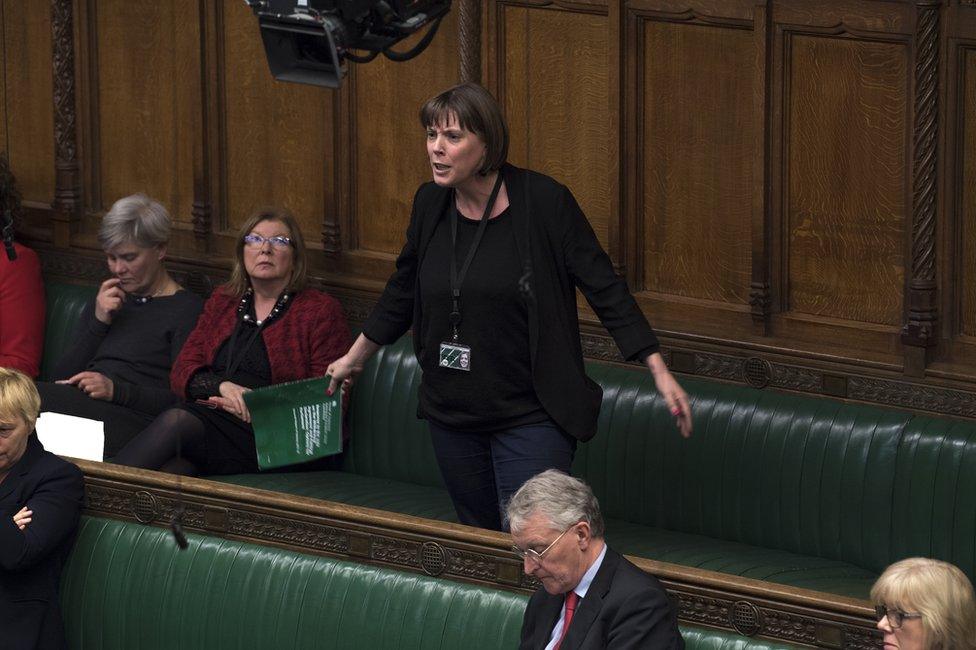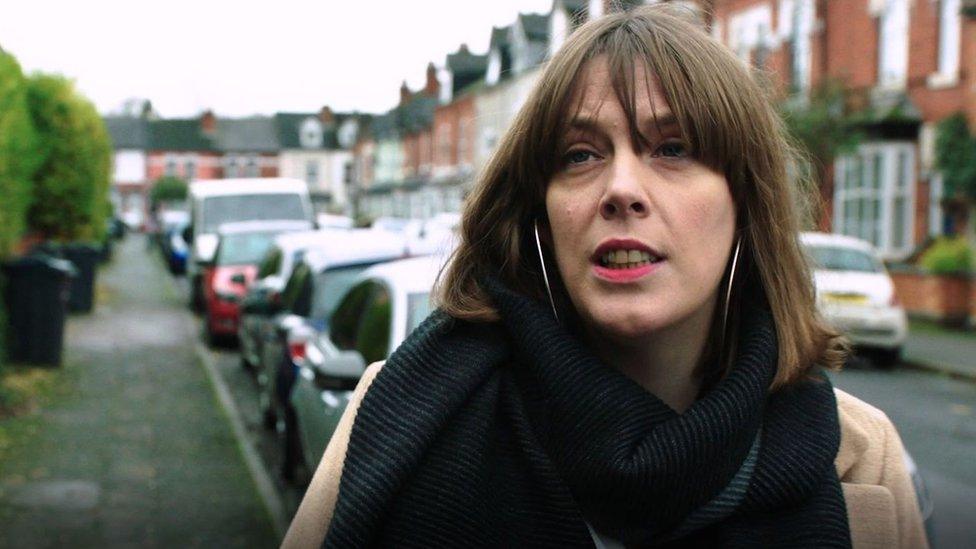Labour leadership contenders: Jess Phillips
- Published

Jess Phillips has withdrawn from the race to be Labour's next leader.
But she is sure remain a prominent figure within the party, with many seeing her as a contender for a shadow cabinet position.
Here is our profile of the Birmingham Yardley MP.
Personal life
Ms Phillips was born in 1981 in Birmingham to her parents Stewart Trainor - a teacher - and Jean Trainor - the deputy chief executive of the NHS Confederation.
Her grandfather was a cartoonist for Labour politician Tony Benn, and she has said she and her three older siblings grew up in a politically active household.
After going to her local grammar school, King Edward VI Camp Hill School for Girls, she went on to study economic and social history and social policy at the University of Leeds, graduating in 2003.
She has written two books, with her first - Everywoman, One Woman's Truth About Speaking the Truth - bought by a TV company to adapt for screen.
She is married to former lift engineer Tom Phillips, and the couple have two sons.
Before Parliament

Ms Phillips worked for Women's Aid in the West Midlands
Ms Phillips began her career working for her parents' company Health Links, which specialised in running events for the health, social and environmental sectors.
In 2010, she joined Women's Aid, managing domestic abuse refuges in the West Midlands.
She then returned to studying, going to the University of Birmingham to get a postgraduate diploma in public sector management.
Ms Phillips had been a member of the Labour Party, but left in 2005 in protest at the Iraq War.
However, she rejoined ahead of the 2010 election and got involved in local politics, starting a campaign in King's Heath, Birmingham, to combat arson attacks on cars.
In Parliament

Ms Phillips has been praised for her speeches from the backbenches
In 2013, Ms Phillips was selected to contest the seat of Birmingham Yardley from an all-women shortlist.
The seat was held by Liberal Democrat MP John Hemming, but in the 2015 election, she won it with more than 40% of the votes and a majority of more than 6,500.
Labour MPs were then thrown straight into a leadership contest, and Ms Phillips gave her backing to Yvette Cooper, not Jeremy Corbyn.
It didn't take her long to get a reputation for being critical about the new Labour leader.
She initially took a role as a parliamentary private secretary to Lucy Powell - then shadow education secretary - but she joined Ms Powell and other frontbench members in resigning in protest at Mr Corbyn's leadership.
Ms Phillips continued to criticise Mr Corbyn for the gender make-up of his shadow cabinet, and for his handling of allegations in the party of both anti-Semitism and sexual harassment.
She once told Guardian columnist Owen Jones, a supporter of Mr Corbyn: "The day that you [Mr Corbyn] are hurting us more than you are helping us, I won't knife you in the back, I'll knife you in the front."
Ms Phillips has sat on a number of select committees and has been praised as a strong speaker from the backbenchers, often focusing on issues around women's rights and austerity.
Each year, she reads out a list of names of women killed by their partner or ex-partner to highlight domestic abuse. She has also spoken out about the amount of online abuse she and other MPs receive.
She supported remaining in the EU, despite her constituency voting to leave, and has hinted at the possibility of supporting campaigns to rejoin the EU after Brexit.
The pitch

Ms Phillips spoke from her hometown of Birmingham in her campaign video
Ms Phillips announced she was running because she believed "we need more honesty in politics."
She launched her campaign in Grimsby - a former Labour seat lost to the Tories in the 2019 election - telling supporters "something has to change", and promising to "truly speak truth to power".
"I'm able to reach people... and I'm able to get people to trust me even when they don't agree with me, and I think that's what politics needs," she said.
Ms Phillips posted a video on Twitter alongside her campaign launch to show her in her local community.
In it, she said: "It's time to speak up, to stand up for our values and what we believe, to reconnect with communities and to win back power."
But in January she withdrew from the race, having failed to secure any nominations from unions or local Labour party branches.
In a video message to supporters,, external she argued the next leader had to be able to unite the whole Labour movement.
"[But] I have to also be honest with myself, as I said I always would be throughout this campaign. At this time, that person is not me."